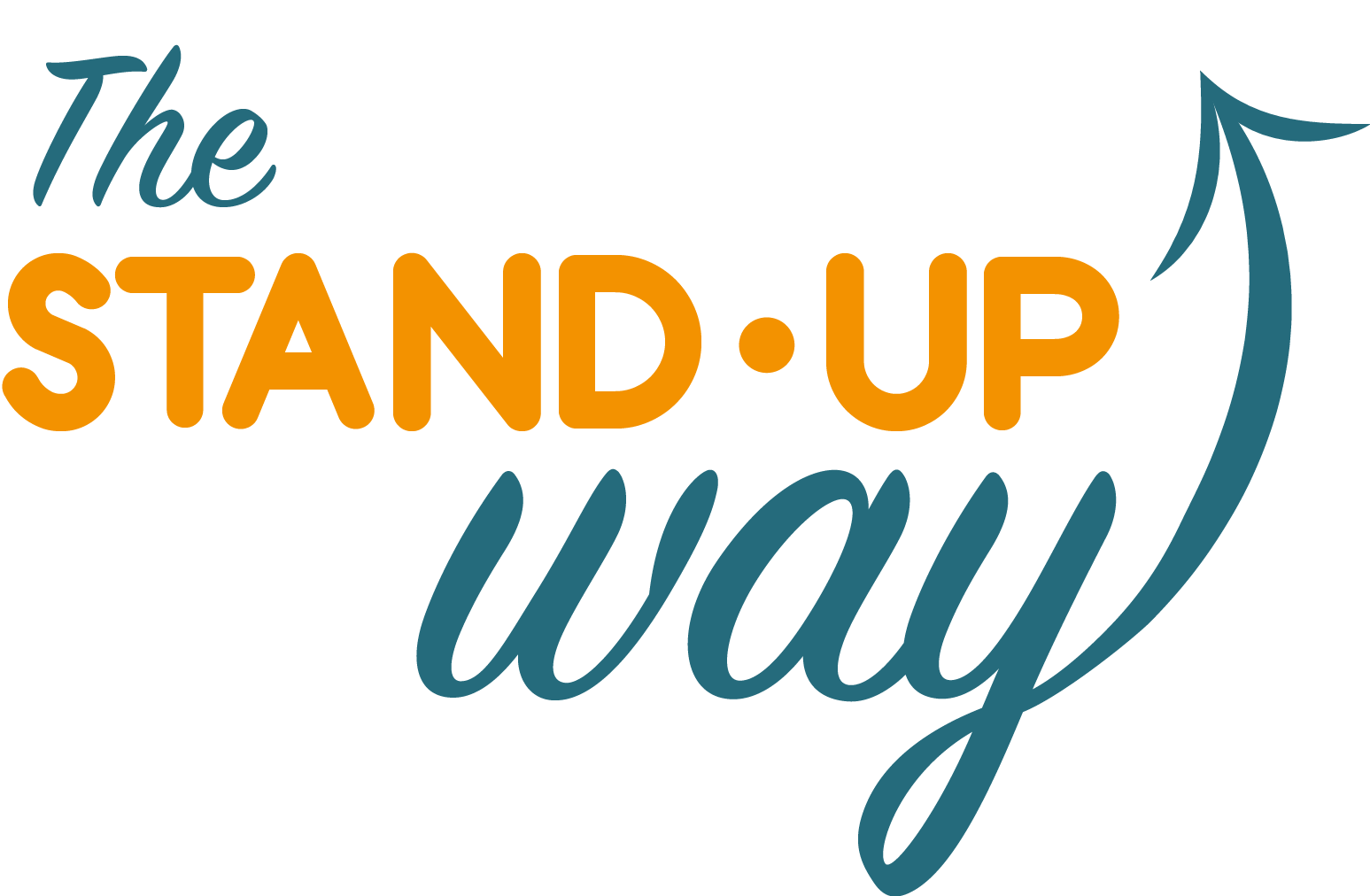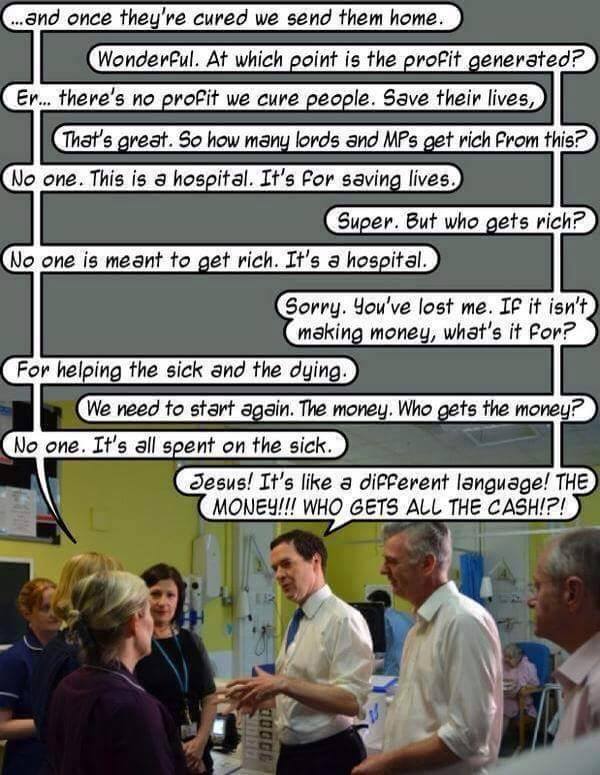
Have you ever been asked: How does your work contribute to society? What values does your product support? What is your impact? When you want to start a new business or design a new product, one of the first questions you will likely get is: what is your business model? Or in other words, how are you going to make money out of it? This might seem like a logical question to ask, yet it’s a sign of a deep problem. Namely that making money has become the top priority of our society, trumping things like taking care of each other and the environment or collaborating on mutual progress. This is of course linked to the fact that money is perceived as real value, which was tackled in the first part of this series.
Eyes on the money
In today’s world we are facing the reality that, in order to get something done, we don’t only need the necessary materials and the skilled people to do the job. We also need the money to fuel the action of bringing them together in a project that gets the job done. In a way this is total madness. The willingness of people to do something valuable is now dependant on the availability of a man made resource that is not even ‘real’.
Imagine we would implement this principle in your household and take the simple example of taking out the trash. Something that I’m pretty sure everyone agrees on that it needs to be done. The skilled people, your family members, are there. The necessary resources are there too: a full garbage bag or bin and a sidewalk where it can be put. In the monetary world the garbage bag would be taken out only if enough money is available to pay the person who does the work of putting said garbage on the sidewalk. And not only that. We also need to pay the person that handles the administration of the project. A contract is needed before the work can even be considered to be executed, a report on the quality of the job needs to be created (probably to never be read) and time spent on the job needs to be logged. And probably some other tasks involving following procedures and protocols. I’m pretty sure taking out the garbage would become quite a tedious thing to do under these circumstances and would very likely end up not being done due to a lack of budget. All that while everything that is needed to do it is available.
Now this example might seem exaggerated but it’s actually not that far from what is happening in the world at large. There are tons of projects that need to be done and for which both the resources and the skilled people are available but the money is not. The infrastructure in the US is in terrible shape, yet nothing is being done about it due to a lack of budget. People are dying from curable diseases because they don’t have the money to pay for the cure. In a lot of countries education is not available to everyone because they don’t have the financial resources. Scientific research is struggling due to budget cuts, not due to a lack of enthusiastic and knowledgeable scientists. There is a huge reluctance to really invest in a shift away from the current trend of climate change because it would cost too much money for the organisations responsible for it.
In short, we are holding back on education, health care, housing, infrastructure, progress through scientific research, taking care of the planet we live on, social support for the ones in need, … because there is a shortage of money. Or in other words, because there is a shortage of this one thing that we can create as much of as we want but won’t because it would jeopardise another man made thing called the economy. Somehow we seem to have totally screwed up our priorities.
And it shows up in family lives as well. Quality time with partners and children is being sacrificed for careers that bring in money. Child care is outsourced to babysitters, game consoles and TV’s. Meal times are rushed because there is still work that needs to be done. Stress levels are up. Personal health care and physical exercise is down and healthy eating habits go down the drain in the name of chasing the next pay check or bonus.
And this ‘money rush’ is taking its toll on our personal development. When spending so much time making sure enough money comes in, we exhaust ourselves, especially when doing jobs that are not very inspiring. After a full day’s work you are probably not very inclined to take some time for extensive self reflection or educating yourself on non work related topics.
The profit demon
When running any business, profit is ubiquitous. And in the monetary world we live in today, that’s pretty normal too. After all, you want to have some money left over to live off. As long as profit is a side effect of providing value, everything’s fine. For many however, profit has become the main focus. In essence, it has replaced the product/service they are selling. And it’s here where things start going wrong.
When profit becomes the focus, sacrifices in other areas will be made. Often this is on the quality of the product, the wages of the employees, the number of employees and the work conditions of employees. External consultants are hired to figure out where the next cut can be made in order to keep profits up. And these days, keeping profits at the same level isn’t even enough. When a company does not make more profit this year than the year before it is considered to be in trouble.
Let’s project this on a family and translate monetary profit into real value. That would mean your family is in trouble when you don’t have more food, time, stuff, activities, travels, housing space, … than last year. I haven’t done any research on this but I assume the majority of families is in some deep trouble when seen from this perspective.
When there are shareholders involved, profit really becomes a problem. What shareholders are buying is actually return on investment, or in other words: profit that is shared with them. Now a group has been added who’s sole reason to invest is to make money. Often this goes hand in hand with a disregard of value being created. And on top of that, they can bail at any time by selling their shares. There is no loyalty in play, only monetary interests. This puts extra stress on making sure profits keep coming in, often regardless of other values.
In a time where there is an abundance of workforce, this creates a downward pressure on wages, a deterioration of employee benefits and a pressure on politics to control this. Just look at the fight for minimum wage in the US and you’ll know what I’m talking about.
It doesn’t stop there though. Profit as the main measure of succes is destroying our society and our quality of life.
Profit has brought to life a thing known as planned obsolescence. It is invented by the industry to make sure they can keep selling a high enough quantity of their product by making sure it either breaks down fast enough, becomes obsolete, out of date or undesirable. Your parents or grand parents probably managed to buy a washing machine that lasted 20+ years. I still remember we bought one 30 years ago and it’s still working today. These days you’d be lucky if it lasts 5 years. This is not because we can’t make washing machines that last 30 years anymore but because doing so would hurt the profit margins of the companies producing them. So they are designed to break down. On top of that, repairability is kept low and repair costs high so that instead of having your product repaired you are encouraged to buy a new one.
Having your product break down is not the only strategy that is implemented of course. Advertisement has been geared to making you believe that the still functioning product you own really is out of fashion and you should dump it for something new. You should not wear that 2 year old, out of fashion, t-shirt, the car you drive has been technologically surpassed and we’re really sorry but we don’t support your computer anymore, even though for you it might still do what it needs to do. You better buy a new one.
Focus on monetary profits has created a produce/use/throw away cycle that is devastating to our planet. The cost of waste management, pollution and exhaustion of scarce resources (the real ones like metals, minerals and fossil fuels), is not payed for by the producers of these products. That’s a cost we pay for with our taxes, with a polluted environment and with our health. And of course by having products that become useless after a short period of time so we are urged to buy new ones so we will continue chasing the money needed to make those purchases.
Profit also blocks long term investments that deliver actual value. It’s pretty hard to find people that want to invest in reforestation when they can’t then log the created forests. Try to find investors that would forego building a high rise apartment building in favour of a park for the neighbourhood. The entire case of Bayer selling pesticides that have been proven to kill of our bee population is one of the best examples where raising profit to the highest good is literally killing our future chance of survival.
Work conditions in several factories in developing countries are abysmal because that way profits can be increased on the backs of people who are working in dire circumstances.
Even sectors that provide necessary service to the public have succumbed to the profit demon. Pharmaceutical companies will only invest in medication that can bring in the money. Hospitals need to be profitable of they are shut down. Supermarkets are willing to sacrifice food quality for higher profits. A large part of our food chain market is enticing us to live an unhealthy lifestyle by offering us cheap, but unhealthy, fast food and bombarding us with advertisement for addictive, sugary drinks that are detrimental to our health.
The fear of not making enough profit is also hindering our progress while at the same time hurting our economy, the thing that everyone is so concerned about. Millions of dollars are being wasted on patent lawsuits with the sole goal to protect one’s profits. If information and discoveries would be free, it would not only save us from the tremendous cost of those lawsuits, it would allow others to build on and further develop these new inventions. Right now, patent litigation is stifling innovation and is detrimental to initiatives that are beneficial to our society because large organisations have so much money they can bring to the table that small startups usually settle because it’s cheaper than taking it to court. And some of these law suits are plain ridiculous, like this one where someone sued because he had ‘invented’ a chicken sandwich! Or they are overly broad such as this patent describing a system where a “remote server” “transmits” a “product preference” via a “communication module”.
Governance
Money has also permeated our governance structures. Social support, investment in education, public health care, art subsidies, public green space, … it’s all being cut in the name of the economy. Austerity programs are rolled out everywhere, even though even the IMF has stated in a document that it’s actually harmful to the economy.
By focusing so hard on the economy and the GDP we are loosing sight of what really matters, namely the quality of life of the people. In his book ‘Rethinking Money‘, Bernard Lietaer gives a great example where an increase in GDP actually destroys social capital and thus quality of life for citizens: when care for a family member is outsourced to a payed service, this will be booked as a surplus on the GDP. As everyone who has ever had an elderly family member in a nursing home knows, this really does not improve their quality of life.
Greece is a fine example of where governments, under the pressure of banks, have created a situation so bad that suicide rates have gone up, all because of a lack of money. Which essentially comes down to some numbers in an accounting profile.
Where governments start cutting on education they are literally disinvesting in the future of their country. Not only in terms of having a less educated population, even in economic terms this is short sighted stupidity. Studies in Texas and North Carolina have shown that spending on higher education adds billions to their economy. And yet schools and teachers are often struggling to survive and are being placed under enormous workloads because these days they also have to justify and report everything they do while their means are being limited.
Far reaching social support programs such as a basic income have been proven to have a major positive impact on both the quality of life and the economic situation in areas where it has been implemented. Yet most governments are reluctant to even consider this due to a perceived idea of high cost.
The latest round of monetary focused insanity is currently taking place in the form of TTIP and ISDS. These are international trade agreements being negotiated between the US and Europe, behind closed doors. Now, international trade agreements are not necessarily a bad thing. They can bring us quite some benefits such as easier access to goods and technology from abroad. If they are implemented with the interest of citizens at the forefront that is. Given the fact that these documents are kept under extreme secrecy, even to our own politicians, there is definitely reason for suspicion. Big companies would be very happy if they manage to close these deals in a way that would safeguard their profits, even against governmental laws and regulations. If these negotiations are so beneficial to us, the population, then why are we not allowed to know what’s in them? Although the closing of these deals will have a huge impact on our lives, we are kept in the dark and this is not an item that is widely covered in the mainstream press. Most people don’t even know that TTIP and ISDS are negotiated, let alone know what they stand for.
There is some good news regarding these negotiations though, apparently Europe has rejected support for ISDS. Still, transparency on these negotiations would serve all of us and give us an opportunity to let our voice be heard so that, if and when these deals are made, we can have our say in them too.
Conclusion
Focusing too much attention on money, although a handy and useful tool in itself, is wrecking havoc in our society. It is destroying social capital, our environment, quality of living, innovation and communities.
Admittedly, if you have little or no money in today’s world, life can be hard. That is mostly due to the fact that money is usually a barrier between what people need/want and actually getting it, even if we are talking about basic necessities such as healthy food, clean water, clothing, housing, education and health care.
How did we get here? Are we really that stupid that we would deliberately create a world of suffering? Well, not completely. To get there we will first have to explore how money works, which will be tackled in the 3rd part of this series.
Also published on Medium.




Looking forward to read the next part(s).
Hopefully, there will come a part about money alternatives / money (re)design…
Keep up the good work to help people see the absurdity of our current money system!
Thanks Jan! And yes, the last part will be about the alternatives.